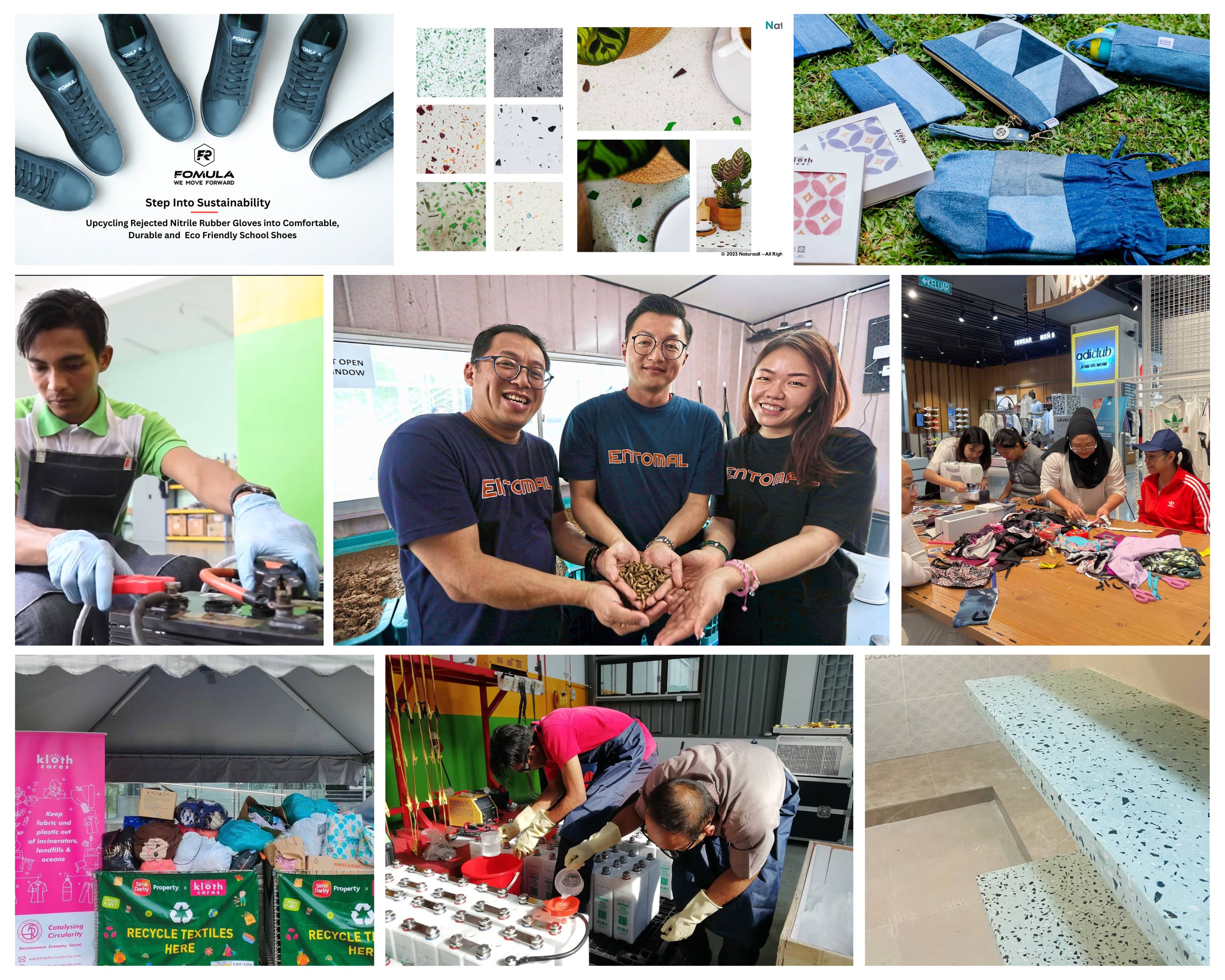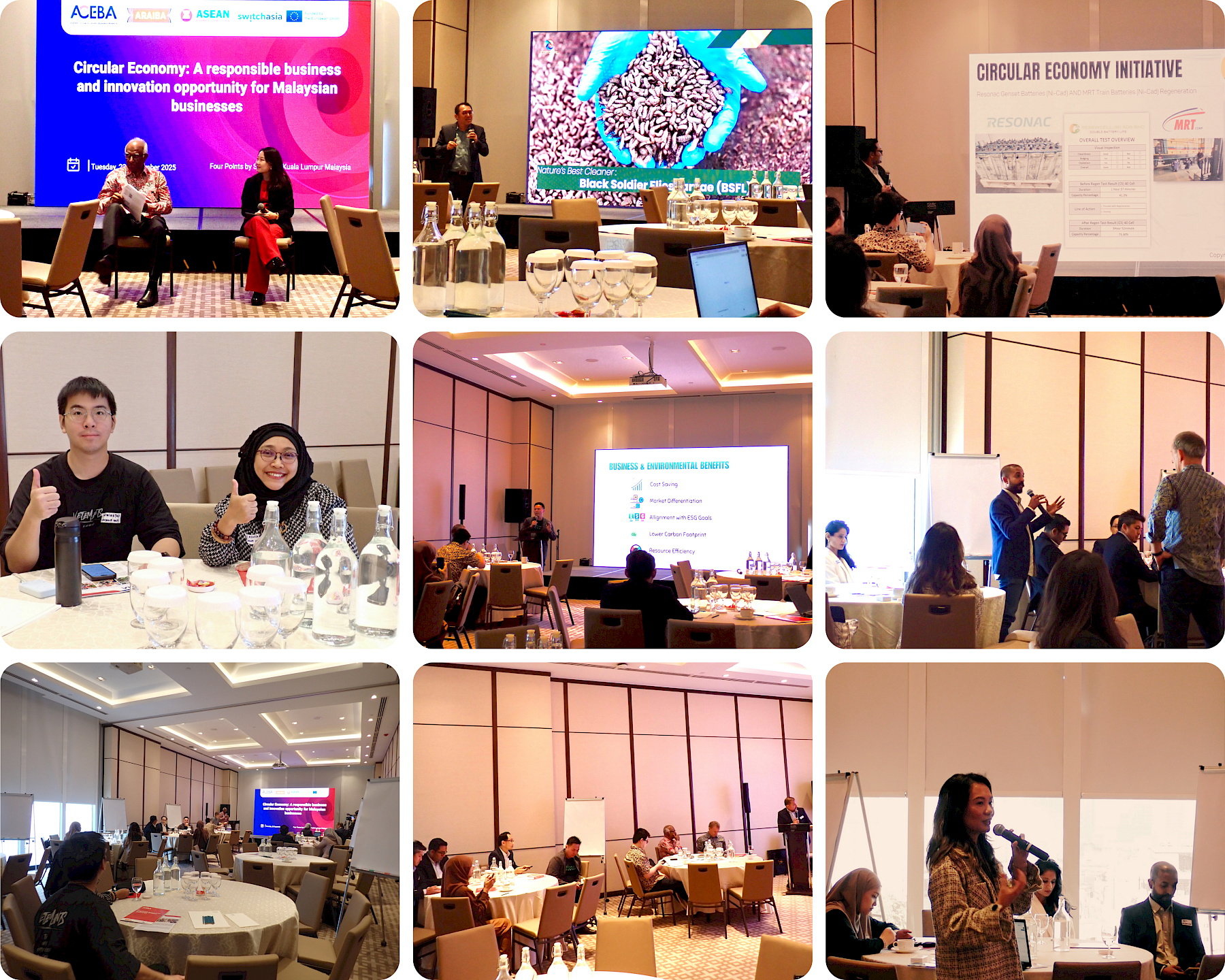
The Malaysia Workshop of the ASEAN Circular Economy Business Alliance (ACEBA), held at Four Points Chinatown Hotel in Kuala Lumpur on 23 September 2025, brought together industry leaders, policymakers, and key stakeholders to explore the growing importance of circular economy (CE) practices in Malaysia and the business opportunities this presents. The event, organized by the ASEAN Circular Economy Business Alliance (ACEBA), was supported by the EU SWITCH-Asia Policy Support Component (PSC).
Mr. Thomas Thomas, Co-convenor of ACEBA, Chairman, ARAIBA Sdn Bhd; and senior expert, SWITCH-Asia PSC, stressed upon the need to transition to circular economy to tackle climate change, biodiversity loss, and pollution. Just as impacts are increasingly felt around the region, governments and businesses are reluctant to raise ambition and step up policy and investments. Business has a key role to play to address a looming trust deficit with consumers and society.
The Malaysian government is strongly committed to the CE transition in the waste and manufacturing sectors. Dr. Jayaprakash Murulitharan, Senior Policy Advisor, Urban Sustainability Division, Ministry of Housing and Local Government presented the Blueprint Circular Economy for Solid Waste Management in Malaysia 2025-2035. This covers 5 strategic pillars with 20 key initiatives improve waste management as contribution to CE.
Ms Aedreena Reeza Alwi, Senior Director, Ministry of Investment, Trade and Industry, presented the Circular Economy Policy Framework for Manufacturing in Malaysia, 2025-2045. The framework is structed around the four themes of circular input, efficient process, sustainable output and socio-economic impact, and provides for each a long term ambition and 2030 targets and performance indicators.
Dr. Rene van Berkel, Co-convenor of ACEBA; senior expert, SWITCH-Asia PSC; and international faculty, Thammasat University, highlighted the critical opportunity for ASEAN businesses to implement circular economy solutions, thereby enhancing business competitiveness and fostering sustainable innovation. ACEBA has led the development of an ambitious principles-based CE framework for business and curated over 80 business cases, to showcase that CE is helping businesses to perform well whilst also contributing to addressing planetary crises and supporting communities.
The workshop witnessed inspirational reports from Malaysian CE enterprises, Entomal (using Black Soldier Fly larva to convert food and other organic waste into animal feed and organic fertilizer); Geomax Rubber (turning discarded rubber gloves into footwear) and Renewcell (rejuvenating industrial batteries for energy efficiency and lifetime extension).
Dr. van Berkel remarked that the business cases illustrate that CE is not just a planetary health necessity, yet equally an opportunity for innovation and business development. He also elaborated on the modalities and resources of the ASEAN Circular Economy Business Alliance to support Malaysian businesses to engage with CE and take impactful CE actions within their enterprises and value chains.
Ms Crystal Yip, Senior Lead, Global Compact Network for Malaysia and Brunei reflected that CE is high on the agenda of businesses participating in the United Nations Global Compact. CE provides a practical opportunity for business to deliver on their commitments to contribute to environment, labour, anti-corruption and human rights. Mr Thomas reiterated the centrality of business values to drive and achieve responsible business conduct to improve business contributions to society and environment.
The ACEBA initiative, with the backing of regional and international partners, is poised to continue championing the circular economy agenda in Malaysia and other ASEAN Member States. With inspiring business cases and clear policy directions, the event reinforced the critical role of the circular economy in fostering sustainable growth and innovation across the region.

About ACEBA
The ASEAN Circular Economy Business Alliance (ACEBA) is a regional platform for businesses committed to advancing circular economy practices. ACEBA works to provide visibility, showcase business cases, and facilitate collaboration to drive sustainable growth across ASEAN, in partnership with governments, businesses, and stakeholders. ACEBA’s efforts focus on supporting businesses in sectors such as food, textiles, automotive, and electronics to implement circular solutions, enhance resource efficiency, and build competitive advantage.
For more information on ACEBA, please visit www.aceba.co


